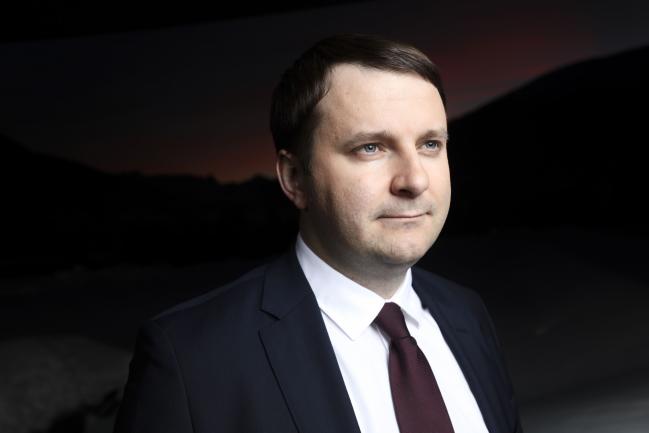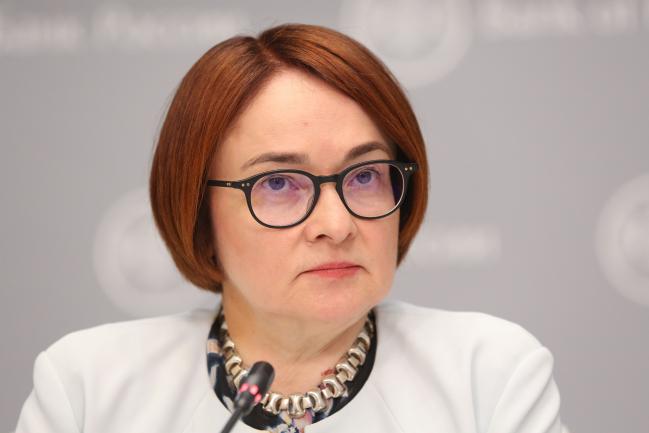(Bloomberg) -- With President Vladimir Putin regularly promising higher living standards, economy ministers in Russia tend to focus on upbeat news in their public statements. So it was something of a shock when Maxim (NASDAQ:MXIM) Oreshkin warned of a looming credit crisis in a national radio interview.
“The economy will definitely fall into recession” if the consumer-lending surge continues unchecked until the bubble bursts on its own, Oreshkin said in a prime-time interview on the Ekho Moskvy radio station on July 21. “Our estimate is that 2021 is the year when it blows up.”
The appearance was only the latest in an intensifying campaign the former investment-bank economist has been waging to sound the alarm about what he says is a potentially mortal threat to Putin’s hopes of speeding up economic growth.
Along the way, he’s opened a public breach with the central bank, which has dismissed his warnings as unfounded and brushed off his calls for it to move more decisive to to curb lending. It argues the main obstacle to faster growth is slow progress on reforms to improve the investment environment -- the responsibility of Oreshkin and his government colleagues.
Behind the unusually open bureaucratic battle is deepening alarm in the Russian leadership about the weak economic performance as five straight years of stagnation and falling living standards have driven support for Putin and the ruling party to the lowest in years. As part of his re-election campaign last year, the Russian leader pledged to bring growth above 3% a year by the end of his term in 2024. That’s a rate the economy hasn’t seen since 2012.
A $400 billion spending plan that’s supposed to help revive the economy has gotten off to a sluggish start, while the global slowdown triggered by fears of a widening trade war between the U.S. and China pushed Russia’s growth to 0.7% in the first half of this year. Several forecasters have trimmed their outlooks for this year and next.
“In the government, everyone is nervous about bad economic growth,” said Andrei Kolesnikov, analyst at the Carnegie Moscow Center.
The Economy Ministry forecasts that the pace will pick up later this year once government funds begin flowing, accelerating to 3.1% in 2021, well ahead of the end of Putin’s term. But according to Oreshkin, that will only happen if the central bank moves quickly now to control what he calls a dangerous bubble in consumer lending.
He says he’s been raising the alarm internally about the issue for more than a year, but went public because the central bank’s efforts to rein in the lending boom so far haven’t worked. He denies any rift with the powerful monetary authority, saying he’s just engaging in “public discussion.”
Oreshkin marshals data showing consumer debt growing at 25% -- 1.8 trillion rubles ($28 billion) last year -- with payments depressing living standards. For a third of borrowers, debt payments take up more than 60% of their monthly income. Many simply refinance existing obligations with new borrowing, delaying repayment that they’ll never be able to make. Meanwhile, lending to companies is growing much more slowly, something Oreshkin argues stifles investment and growth.
The central bank says the worries about consumer lending are misplaced. “There’s no bubble there, we don’t see one by any indicator,” said Elvira Nabiullina, governor of the central bank.
In a 21-page report issued in June after an earlier salvo from the Economy Ministry, the regulator produced chart after chart showing the debt boom isn’t out of control and hasn’t hurt consumer incomes. In fact, according to the central bank, the borrowing has been the main factor keeping economic growth in positive territory this year.
Tightening rules for consumer lending won’t boost credit for the corporate sector, according to the central bank. Companies are holding back on investment not because of the cost of capital but because of the government’s failure to deliver on long-planned moves to improve the business climate, which is what business surveys show is the main impediment to expansion.
“When proposing steps to increase economic growth, we first of all should remove the barriers that economic agents and we see as obstacles,” Nabiullina said.
Analysts tend to side with the central bank.
“There is a problem with unsecured lending, but the central bank, with something of a delay, is dealing with it and all isn’t lost yet,” said Alexander Danilov, banking analyst at Fitch Ratings in Moscow.
“The danger from lending and the stimulation of economic growth are two different problems,” said Alexey Vedev, a former deputy economy minister. “Oreshkin is a politician and he needs to explain why the president’s decree won’t be fulfilled,” he added, referring to Putin’s 2018 order mandating growth above 3%.

